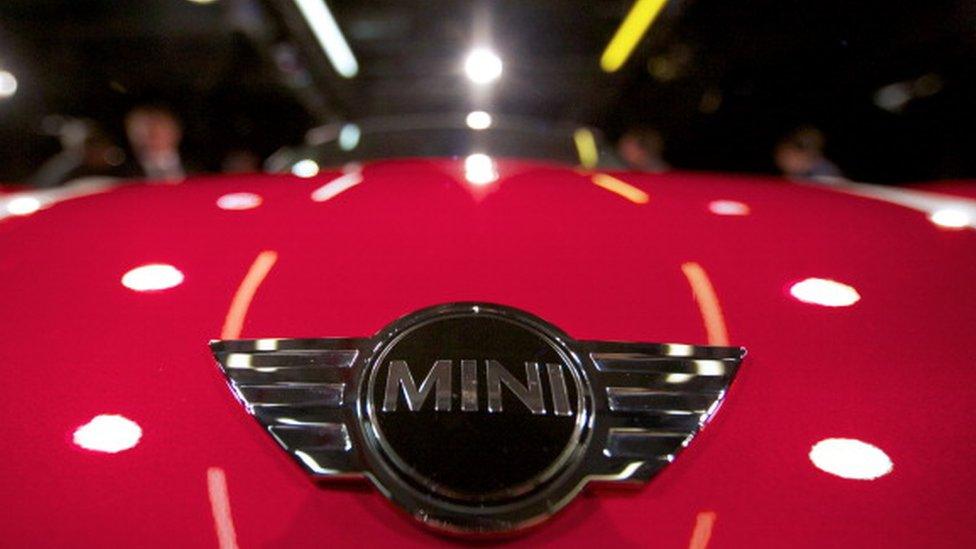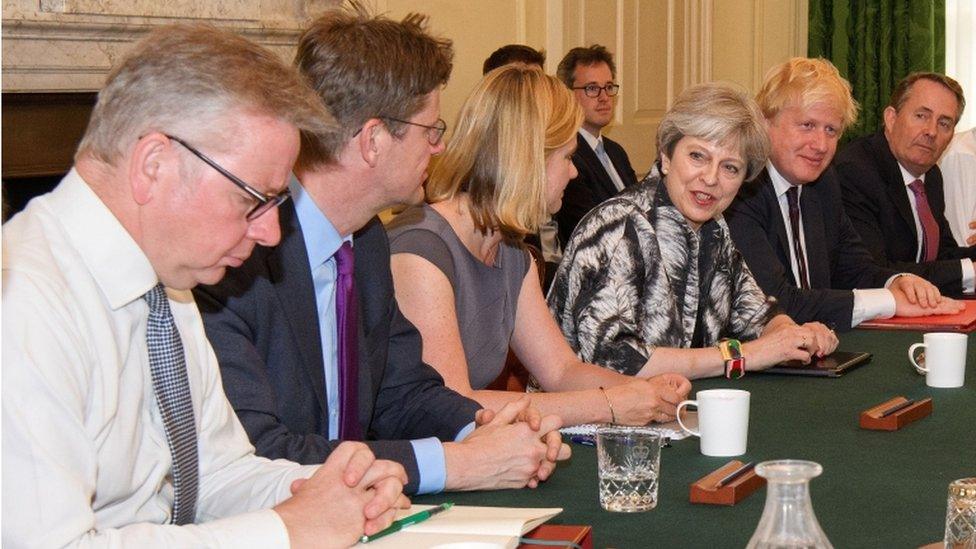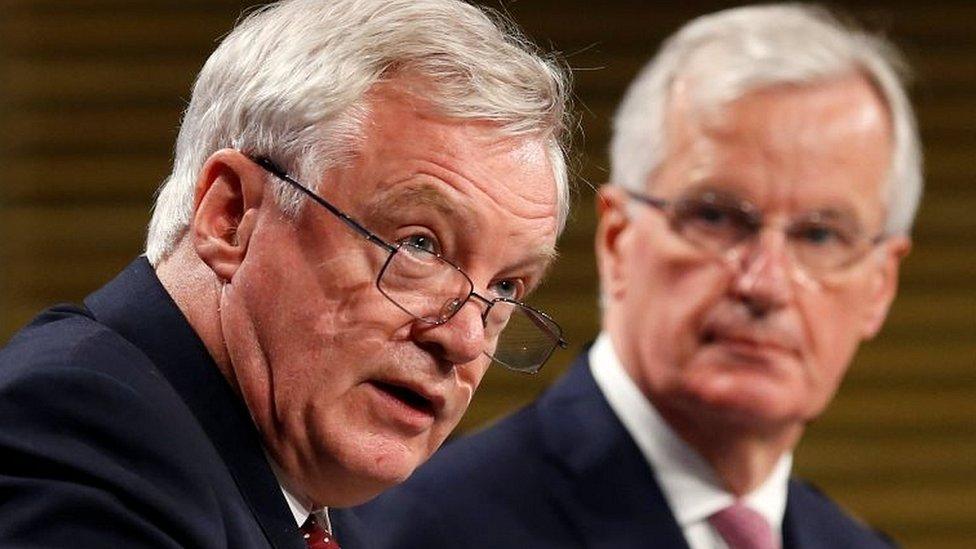Brexit: Liam Fox sets election deadline for EU transition
- Published
Fox sets 2022 deadline for EU transition
Any transitional arrangement with the EU after Brexit must end by the time of the next election, Liam Fox has said.
The international trade secretary told the BBC he had no ideological objection to interim arrangements to minimise disruption after the UK's exit in 2019.
But he said he did not want them to "drag on" beyond the date of the next general election, scheduled for 2022.
The cabinet is said to be united behind a transition although reports it could last four years have been downplayed.
Chancellor Philip Hammond is reported to support a lengthy transitional period to bring certainty to business, which is concerned about the impact on trade and employment of a "cliff-edge" departure.
Newspaper reports on Friday suggested ministers had accepted it could last anywhere between two and four years.
Mr Fox, who is in Washington for discussions on future trade relations with the US, told the BBC's Andrew Marr Show that it was "perfectly reasonable" for there to be a transition period to ensure the process was as "smooth as possible" for British business and foreign investors.
'Time limited'
But he suggested that voters would want any "voluntary" arrangement to end by the time of the next general election, due to take place in May 2022.
And he said he would want the UK to be able to negotiate its own trade deals during that period so it could take "full advantage" of its new status.
"Having waited over 40 years to leave the EU, 24 months would be a rounding error.
"Whether that is 23 or 25 is not a huge deal and neither is it an ideological one.

German car manufacturers have said the UK must put pragmatism ahead of ideology
"It is about the practical issues we would face, such as getting any new immigration system into place, getting any new customs system into place."
However, he made clear there would have to be clarity not only on the duration of any transitional phase but what limitations it would place on the UK.
Several Conservative MPs have suggested that any deal which required the UK to accept continued free movement for a limited period of time or the jurisdiction of the European Court of Justice in return for continued temporary membership of the single market would be unacceptable.
Mr Fox added: "I think we would want to get it out of the way before the election.
"I don't think people would want to have it dragging on. I think we would have to be very clear it was time-limited and limited in its scope."
"It is imperative that we leave the EU first and that any implementation period is done "voluntarily" alongside the EU to minimise any disruption."
'Time for pragmatism'
The head of the powerful trade body representing German car manufacturers has told the BBC there will be a threat to jobs and investment in Britain if the UK leaves both the single market and the customs union.
Matthias Wissman, whose members include Volkswagen, BMW and Porsche, said his preferred option was for the UK to adopt a Norwegian-style membership of the European Economic Area but, failing that, a lengthy transitional period was a bare minimum.
"You need a transition period," he told Radio 4's The World This Weekend. "We hope that on the British side that gets deeper and deeper into the intellectual capabilities of those who decide."
Urging British politicians to put pragmatism ahead of ideology, he said a tariff-free trade deal with the EU was possible but only if "the UK understands what the preconditions are".
"Any kind of unwise, dramatic changes would have an effect on investment and jobs in the automotive industry. Hard Brexit would mean barriers, control of goods."
Speaking on the Andrew Marr Show, Labour leader Jeremy Corbyn said he accepted the UK would be leaving the single market, as it was in his words "inextricably linked" with EU membership, but suggested he had not reached a final view on whether it would be better to remain within the customs union.
He also suggested future trade deals should be linked to commitments on environmental protection and human rights.
"What is interesting is that the EU has said quite clearly, and rightly in my view, that they would only do new trade agreements with countries that sign up to the Paris climate change accord," he said.
"The US has said it wants to leave... so it calls into question the whole of the UK government's strategy on a one-off trade deal with the US."
- Published21 July 2017

- Published21 July 2017
